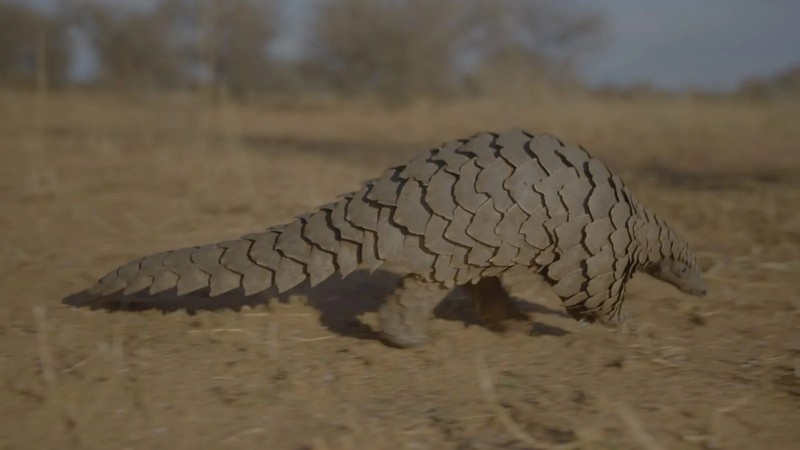Conservationists are sounding the alarm over the devastating decline of pangolins, the world’s most trafficked mammal. Despite international trade bans, it is estimated that one pangolin is poached every three minutes. This alarming rate of poaching is largely driven by illegal markets in Asia and for bushmeat consumption in Africa.
At the 78th Meeting of the UN CITES Standing Committee earlier this month, China proposed a plan to reduce the use of pangolin scales in traditional Chinese medicine (TCM) by 90% in pharmaceutical and hospital settings by 2026. The proposal also includes reducing overall medicinal use by at least 50% and setting a consumption quota of just one metric ton per year — a massive drop from the 25 metric tons allowed between 2008 and 2015.
Although conservationists welcome the move, they remain skeptical. China claims that the scales used in TCM come from a legally held “stockpile,” but the size of this stockpile has not been disclosed. Peter Knights OBE, CEO of Wild Africa, expressed concern: “While China’s move to limit pangolin scale use is a step in the right direction, the lack of transparency surrounding stockpiles remains a major issue.”
In Africa, the problem is escalating. South Africa, a key transit hub, has seen a significant increase in pangolin poaching. Between January and August 2023, authorities seized around 30 pangolins, mostly in Limpopo province, a known hotspot for wildlife trafficking. Nicci Wright, co-chair of the African Pangolin Working Group, explained the difficulty in tracking pangolin populations: “These animals are incredibly elusive, making it difficult to estimate numbers in the wild. What we do know is that trafficking is on the rise, and seizures in Asia often contain scales from all four African pangolin species, including South Africa’s Temminck’s pangolin.”
One promising development in the fight against pangolin poaching comes from Nigeria, which introduced the Endangered Species Conservation and Protection Bill in early 2024. If passed, the bill would impose harsher penalties on wildlife traffickers, potentially setting an example for other African nations to follow.
Pangolins play a crucial role in maintaining ecosystems by consuming up to 70 million ants and termites each year. However, their conservation is severely underfunded, and public awareness is lacking. In South Africa, many people are still unaware of pangolins’ existence. “World Pangolin Day is a reminder of the urgent need to protect these animals before they disappear entirely,” Wright added.
There are several ways to help protect these elusive creatures. One important step is reporting pangolin-related wildlife crime in South Africa to the Environmental Incidents and Crime Hotline at 0800 205 005. Additionally, supporting national parks that provide sanctuaries for rehabilitated pangolins can make a significant difference. Educating oneself and spreading awareness is also key, with documentaries such as Pangolin: Kulu’s Journey, premiering on Netflix on April 21, 2025, offering valuable insights into the plight of these remarkable animals.
The fight to save the pangolin is ongoing, and with greater awareness and action, there is hope that this unique species can be preserved for future generations.
